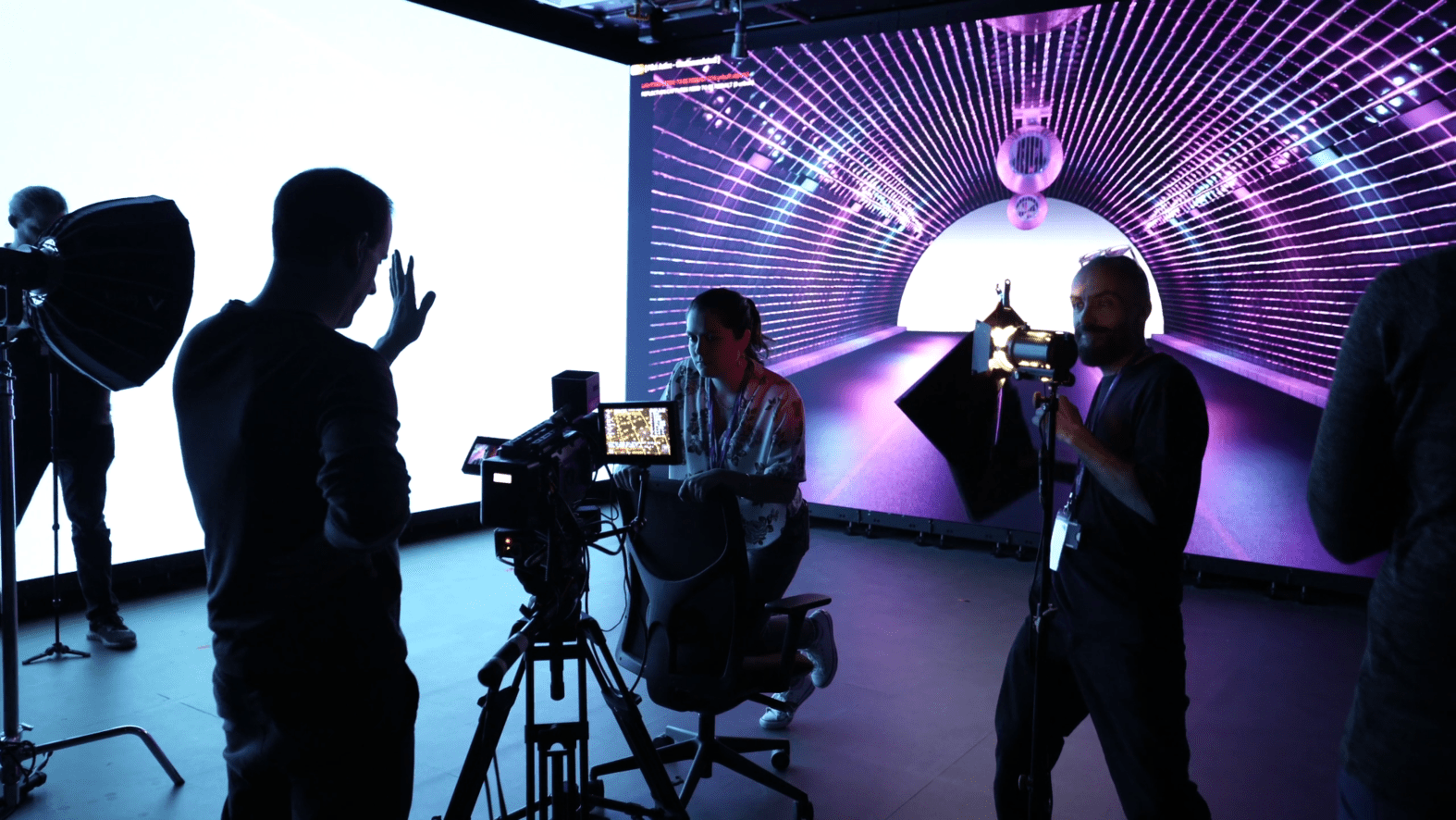Pause carousel
Play carousel

A new research and development facility in Dundee is set to help drive the next generation of visual effects technologies that will revolutionise the UK’s film, TV and performing arts industries.
The state-of-the-art lab is part of the Creative Industries Sector Vision, published today, which sets out the government’s ambition to maximise the potential of the UK’s creative industries so they generate an extra £50 billion for the economy and support a million more jobs by 2030.
A consortium led by Abertay University has been selected by the UK Government as a preferred bidder to host one of four new labs specialising in the future of virtual production - a new cinematography technique using computer-generated imagery (CGI), augmented reality and motion capture to create virtual sets. Abertay has also been selected as a partner for a national lab, recognising the University’s academic expertise in the sector.
Instead of adding visual effects and CGI in post-production, virtual production allows filmmakers and theatre directors to create large-scale digitally-generated environments using LED panels that performers can interact with in real-time, as a faster and less expensive alternative to green screens.
The technology has been used to great success in the ABBA Voyage live concert at the Queen Elizabeth Olympic Park in London and on Disney’s hit show The Mandalorian. The research facilities will study how the latest developments can be used to ensure the UK has the skills and infrastructure to stay on the cutting edge of this type of technology.
Located at Waters' Edge Studios, the Dundee facility will bring together expertise from Abertay University, University of Edinburgh, 4J Studios, TechScaler by CodeBase and Interface, an organisation dedicated to connecting businesses with academia.
The lab is part of UKRI’s Convergent Screen Technologies and performance in Realtime (CoSTAR) programme, supported by £75.6 million of government funding and £63 million of new industry investment, which will form the largest virtual production research and development network in Europe, with four other facilities across the country.
Culture Secretary Lucy Frazer said:
Scotland has a long history in film, TV and the performing arts, home to unforgettable scenery and highly skilled creatives behind popular productions including Tetris, The Traitors and even Succession. Now we’re putting Scotland at the forefront of future technology for the next generation of filming and live events. Together with experts across the UK, this new lab will make sure the UK stays ahead of the latest developments transforming our screens and stages.
The network will include a national lab, a new Insight and Foresight Unit led by Goldsmiths and the British Film Institute. Three regional hubs, in Dundee, Yorkshire and Belfast, are expected to contribute a combined £33 million to the economy and support 423 jobs. Partners involved across the programme include the National Film and Television School, BT, Vodafone, Screen Yorkshire and Disguise as well as Royal Holloway, York and Ulster universities.
Film and TV production contributed £568 million to the Scottish economy in 2019, with new studios in Leith, Bathgate and Glasgow set to grow the industry even further. The project announced today will help prepare Scotland’s film and TV industry to thrive in the future.
Professor Gregor White, Dean of the School of Design and Informatics at Abertay University said:
Virtual production is one of the most exciting emerging applications of media technologies in the world right now. There is enormous potential for virtual film production to be the next major tech success story for the UK. Abertay’s academic expertise in the technologies used to create the real-time media, alongside University of Edinburgh's expertise in generative AI is second to none. Our intention will be to use our research expertise to drive innovation, and the entrepreneurial and investment experience of the broader partnership to deliver economic growth and jobs of the future for the UK creative industries sector.
The network is part of more than £233 million in government spending on the creative industries since 2021, including support for Dundee’s video games research institute InGAME through the Arts and Humanities Research Council’s Creative Industries Clusters Programme. The scheme helps entrepreneurs and businesses innovate with new technologies, secure investment to fulfil their growth ambitions, and access global markets.
The Sector Vision published today builds on this further with £77 million in new government funding, including £50 million to launch another wave of the Creative Industries Clusters Programme in at least six more areas. Alongside this investment, the Sector Vision commits the government to a new creative careers promise - a pledge backed by a comprehensive package of actions to open up more opportunities, particularly for young people, to pursue careers in the creative industries.
Image credit: StoryFutures / Liminal Stage Productions